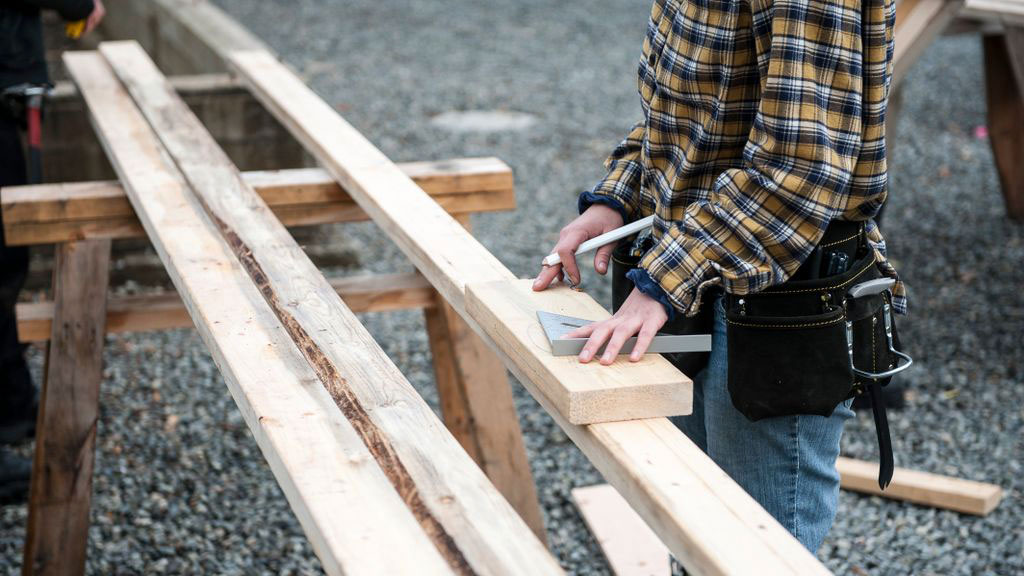B.C. is looking to amend its union certification system from a two-step to single-step system, prompting concern from some construction leaders in the province.
The current two-step system requires a minimum of 45 per cent of workers at a jobsite to sign membership cards and, once that threshold is reached, workers must then restate their preference for a union through a secret vote.
The province stated they are proposing two major amendments. First, if 55 per cent or more of employees in a workplace indicate their intent to unionize by signing union membership cards, a union will be certified, and no further vote is required. Second, if between 45 per cent and 55 per cent of employees sign union membership cards, a second step consisting of a secret ballot vote is required for certification.
The BC Construction Association (BCCA) said it supports a “moderate and reasonable” approach to labour relations that protects the rights of all employers and employees “without favour to the 15 per cent minority who are union members.”
The association released a statement saying it was appalled at the legislative changes which it says are seeking to fix a problem that doesn’t exist.
“This is a time of labour shortage, extreme cost increases, and demand for high productivity in B.C.’s construction sector,” said the BCCA. “The province cannot afford to spend valuable legislative time on ideology. Lawmakers have an obligation to prioritize improvements that will directly benefit the industry as a whole.”
The group noted that prompt payment legislation continues to stall, despite public promises from the NDP in December that it would become an immediate priority.
“Industry stakeholders are waiting for the attorney general to convene the working group,” said the association. “We are told the legislative calendar is full. Yet here is Bill 10, even though there is no legislative imperative more important for B.C.’s construction industry, nor more widely supported than prompt payment. Across the industrial, commercial, and institutional sectors, regardless of labour affiliation, industry supports prompt payment legislation.”
The BCCA added they believe Premier John Horgan and Labour Minister Harry Bains are distracting B.C. lawmakers away from the stated priorities of putting people first and building an economy that works for everyone.
“It’s Construction and Skilled Trades Month in B.C.,” said the group. “Surely there is a better way to support the hard-working people of this essential industry.”
Chris Gardner, president of the Independent Contractors and Businesses Association (ICBA), said the removal of the secret ballot is an erosion of democracy and makes the system more vulnerable to abuse.
Gardner explained he believes the current system where workers vote in private under the supervision of the Labour Board is fair and impartial.
“At the end of that both union organizers and employers know the true intent of the workers and if they want to join a union or not,” he said. “This is not about union or non-union. It’s a worker choice issue.”
Gardner called secret ballots the ultimate protection for workers from being abused by employers or unions and said the card check system leaves things open to manipulation.
“Our view is clear: if you really believed in workers’ choice and believe that workers need protection from intimidation and abuse, you would preserve the secret ballot,” said Gardner. “It’s a step backwards and a significant erosion of our democracy.”
Brynn Bourke, executive director of the BC Building Trades, said she believes the changes have brought back balance to the system.
“When I think about the last two years, with COVID and the pandemic, it has shone a light on why workers need unions,” said Bourke. “I can’t imagine how independent employees could have navigated it alone.”
She cited safety changes, remote work camp concerns, quarantines, vaccination requirements, testing regimes and more that the pandemic brought.
“These changes are important and recognize the right for workers to join a union,” Bourke said. “In construction that has been a difficult right to exercise. Finally, we have restored the balance with this legislation and given workers the ability to organize.”
Bourke explained single-step certification used to be in the province’s labour code but was removed by the B.C. Liberals.
“We have long advocated for it to be restored,” said Bourke. “It’s an important tool for workers to be able to have a conversation with each other and avoid employer intimidation.”
Bourke responded to criticisms of the removal of the secret ballot, saying the majority of unfair labour practices are due to employer interference.
“It’s incredible how this issue has turned some organizations into worker champions all of a sudden,” said Bourke. “Predominantly, when those organizations speak on any other issue they are clear to say they speak for employers and on this one issue they would like us to believe they have switched their hat. It’s just not believable.”
The amendments to the Labour Relations Code will also affect construction sector unions by allowing workers annual opportunities to switch unions if they are unhappy with their current representation. According to the province, current rules can effectively prevent workers from changing unions for three years. Officials stated the amendments recognize that individual construction projects may only be one or two years in duration, preventing some workers from ever being able to change unions under the current system.
“Throughout this pandemic, we’ve seen that many people want to make their workplaces safer, provide more input to their work schedules and negotiate better wages and benefits, and they should be able to do this without barriers,” said Bains in a press release. “The current two-step system can lead to interference in organizing. Under the Charter of Rights and Freedoms, workers who wish to collectively organize must not be impeded in any way.”
Follow the author on Twitter @RussellReports.











Recent Comments
comments for this post are closed